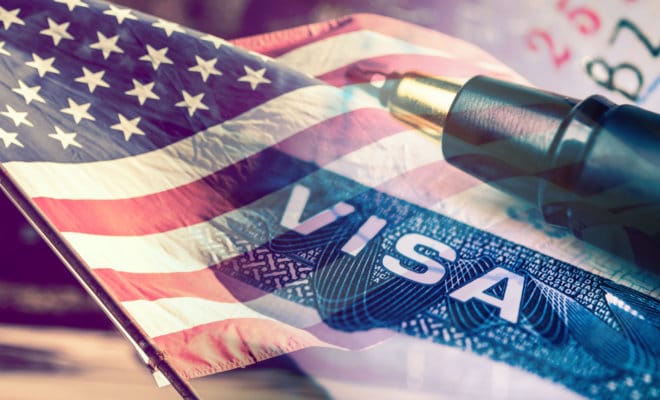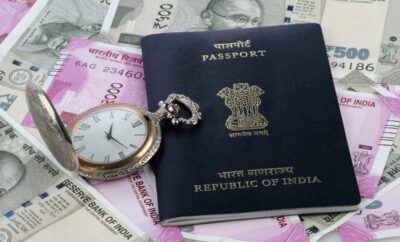Crime
Indian CEO Arrested Over H-1B Visa Fraud in U.S.

Representational Image
Photo: Bigstock
Pradyumna Kumar Samal, the CEO of two firms in Bellevue, Washington, was arrested on a charge relating to a multi-year visa-fraud scheme.
A chief executive officer of two information technology staffing firms in Bellevue, Washington, has been arrested over charges of H-1B visa fraud following allegations that his companies used falsified documents for higher approval of visas.
Pradyumna Kumar Samal, 49, has been accused of running a visa fraud scheme, sometimes referred to as “bench-and-switch” scheme, to exploit foreign-national workers, compete unlawfully in the market, and defraud the U.S. government, according to a statement by the U.S. Department of Justice.
Samal, an Indian national, was arrested at Seattle-Tacoma International airport on Aug. 28, when he returned from India on an international flight. The statement said that the criminal complaint against him was filed in April 2018, soon after Samal, the CEO of Azimetry and Divensi IT firms, fled the United States while the investigation was ongoing.
According to the investigation that was initiated against his tech firms in 2015, Samal submitted, and directed his employees to submit, forged and false application materials to the U.S.government, making it appear as if two corporate clients had agreed to use several foreign-national employees named in the applications. The forged documents included forged letters and fraudulent statements of work, which appeared as if they had been signed by senior executives at the two clients.The applications also carried signatures of client company heads and specific project details, but later the foreign employee was put in a different project, the report said.
“After USCIS relied on the false representations and approved the applications, the companies ‘benched’ the foreign nationals – i.e., the companies left those foreign nationals unpaid – until and unless they were able to place those employees at actual end clients,” the statement said.
The justice department is particularly focusing on about 200 workers who may have been brought to the country through the forged applications. The employees were asked to pay Samal’s firms a partially-refundable “security deposit” of as much as $5,000 for the visa filings, regardless of whether they were assigned to any projects that provided them with income. If the employees were not assigned to any project right away, they were “benched,’’ the report said.
Samal’s lawyer, Diane Butler at Davis Wright Tremaine, defended him by saying that the allegations brought against him only “reflect the current hostility toward business immigration in a zero tolerance environment. Companies like his have helped keep the economy vibrant by providing H-1B tech workers for short-term projects,” Seattle Times reported.
Samal’s company Divensi filed 390 applications for H-1B visas in 2016, which was the fifth highest demand, ranking behind companies like Amazon, Microsoft, Infosys and HCL America, the publication reported.
Visa fraud is punishable by up to 10 years in prison and a $250,000 fine.




You must be logged in to post a comment Login